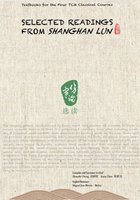
上QQ阅读APP看书,第一时间看更新
Foreword by John Yang
In 2006, when I was the Dean and Clinic Director at the PCU College of Holistic Medicine, I had a difficult time finding a qualified faculty member to teach Traditional Chinese Medicine(TCM) in English. Not only was I looking for someone with a strong command of TCM knowledge, but also, someone who had the ability to teach classical TCM courses in English. In hopes of recruiting the perfect fit, my team ran a national advertising campaign, to which I found that none of the candidates met the necessary standards. My colleague then suggested that I begin to reach out to TCM universities in China. Again, unimpressed by the extremely small pool of eligible candidates, I searched until I found Professor Zhaozhi Cheng – a long-time PhD program mentor at the Hubei TCM University. Professor Cheng’s accomplished 40-year teaching and research career did not go unnoticed; and I was eager to go through all the steps (including navigating the world of applying for special Canadian work visas) to ensure he would join the PCU team. Over the past 10 years, since his arrival to Canada and PCU College, Professor Cheng has solidified his reputation as an accomplished TCM practitioner, an excellent educator, and of course, a very popular classical TCM professor at the College.
As a highly respected TCM researcher and educator, I was delighted to learn that Professor Cheng was pursuing this important project.Readers: it may be your experience that English versions of TCM classics are devoid of comments from their respective authors, and are translated quite (too) literally. As you may know, the TCM classics were written in ancient Chinese. It is difficult for native Chinese speakers with classical TCM training to interpret, and even more so for those attempting to translate their original text from ancient Chinese into English. These TCM textbooks in English compile the specific excerpts from the TCM classics, and are masterfully structured in a way to help you foster a better understanding of original TCM paradigms. The most unique features of these books reflect in the “Commentary” and“Application” sections. I believe it was professor Cheng’s intention to create both a theoretical and clinical text, and reflect the roots of acupuncture and Chinese herbal medicine. The sequence and manner of such originals were chosen both to present a culturally valid view of TCM and acupuncture, and to meet the needs of those who wish to study more sophisticated TCM theory and practice.
Suitable readers range from TCM students who wish to build a more solid foundation of TCM knowledge, and TCM practitioners hoping to find more success in their practices by learning subtle clues from the classics. Laymen seeking to learn basic principles of how to maintain health and wellness may also gain knowledge from reading these textbooks.
By John Yang Dr. TCM, PhD.
Dr. John Yang is a registered Doctor of TCM who resides in Vancouver,British Columbia, Canada. He earned his PhD in TCM from Guangzhou University of Chinese Medicine, and from 2003 to 2014, served as the Dean and Clinic Director at the PCU College of Holistic Medicine. Now he works at the Kwantlen Polytechnic University, the first public university in Canada to offer a TCM-Acupuncture program, as the program developer and department head. As an expert in the field, Dr. Yang has given many national and international presentations and lectures on TCM. He is the current President of the Federation of Traditional Chinese Medicine Colleges of Canada and a committee member on the Standards Council of Canada, Canadian Advisory Committees for International Organization for Standardization for TCM.